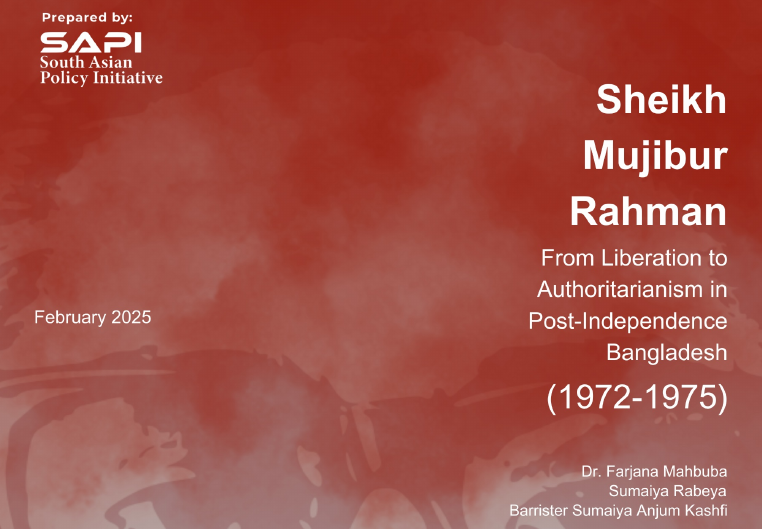Sheikh Mujibur Rahman (1972-1975): From Liberation to Authoritarianism in Post-Independence Bangladesh
Sheikh Mujibur Rahman (1972-1975): From Liberation to Authoritarianism in Post-Independence Bangladesh Published by the South Asian Policy Initiative (SAPI), this report critically examines Sheikh Mujibur Rahman’s rule from 1972 to 1975, tracing his transition from a national hero to an authoritarian leader. While initially hailed as the architect of Bangladesh’s independence, Mujib’s governance quickly shifted …








